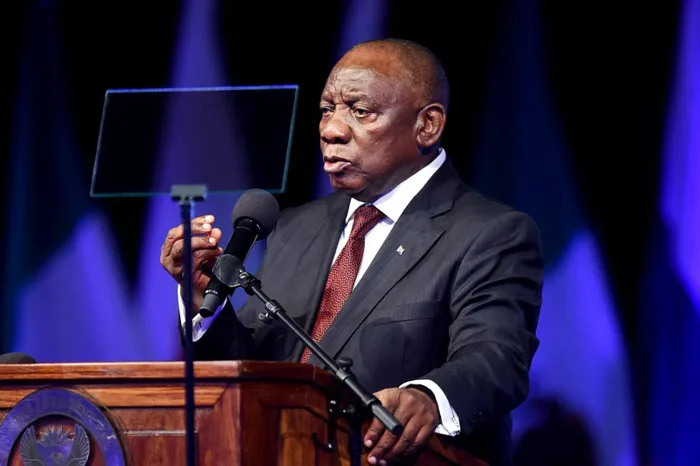Ramaphosa says South Africa will engage US over new tariffs as trade challenges loom
US TARIFFS

President Cyril Ramaphosa reiterated that South Africa's trade relations with the US have historically been complementary in nature.
Image: Itumeleng English / Independent Newspapers
Banele Ginidza
President Cyril Ramaphosa has underscored the country’s commitment to maintaining market access in the face of the United States' recent decision to impose a 30% tariff on South African imports.
This significant shift in trade policy highlights the urgency for South Africa to navigate increasingly turbulent international trade waters and adapt its export strategies.
In his latest newsletter on Monday, Ramaphosa articulated a dual approach: not only will the government engage with the US to ensure mutually beneficial trade relations, but it will also accelerate the diversification of its export markets by boosting intra-African trade.
Recognising the US as South Africa's third-largest trading partner, Ramaphosa acknowledged the measure's potential to disrupt industries heavily dependent on exports to the US, thereby affecting thousands of jobs and the country’s fiscal stability.
"Our foremost priority is protecting our export industries. As government, we have been engaging the United States to enhance mutually beneficial trade and investment relations. All channels of communication remain open to engage with the US," Ramaphosa said.
Last month, US President Donald Trump said the sweeping tariffs will apply to “any and all South African products sent into the United States,” and were being imposed outside of any sectoral trade deals.
In a letter dated July 7, Trump said the move was “necessary to correct the many years of South Africa’s Tariff, and Non Tariff, Policies and Trade Barriers,” blaming Pretoria for what he called “unsustainable Trade Deficits against the United States.”
However, Ramaphosa reiterated that South Africa's trade relations with the US have historically been complementary in nature.
He said South African exports did not compete with US producers and did not pose a threat to US industry.
"Largely, our exports are inputs into US industries and therefore support the United States’ industrial base. South Africa is also the biggest investor from the African continent into the US, with 22 of our companies investing in a number of sectors including, mining, chemicals, pharmaceuticals and the food chain," he said.
"South African imports ultimately benefit US consumers in terms of both choice and cost. By way of example, citrus production is counter-seasonal and does not pose a threat to US production.
"Furthermore, production by US companies has been on the decline for a number of years as yhe US sector grapples with low yields, citrus greening disease, and other factors unrelated to competition from imports. Imports from South Africa, the world’s second largest citrus exporter, have filled a gap and contributed to stable supply and prices for US consumers."
With a view to helping South African producers and exporters aggressively explore alternative markets, Ramaphosa said the government has established an Export Support Desk to assist affected producers.
He said the government will in due course be announcing the modalities of a support package for companies, producers and workers that have been rendered vulnerable by the US tariffs.
"This intervention will also play a key role in guiding industries looking to expand into new markets in the rest of Africa, Asia, the Middle East and markets we already have trade agreements with," he said.
"In the coming months we will be scaling up our trade missions into new markets in Africa and beyond, as well as the National Exporter Development Programme whose aim is to grow the pool of export-ready companies."
BUSINESS REPORT